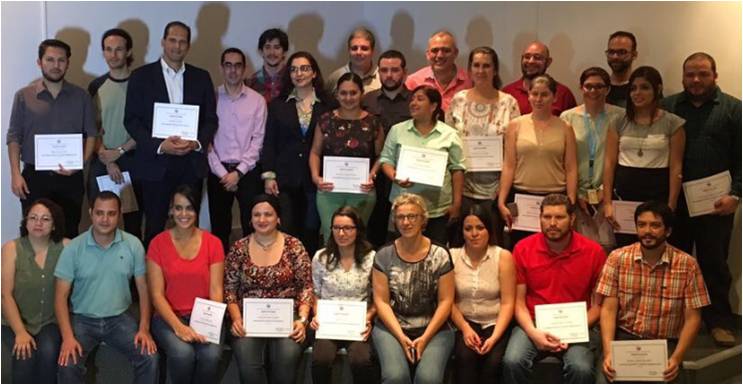The ITU-D National Programme in Web Accessibility: "Internet for @ll"
What does the programme do?
It empowers countries with the necessary know-how to ensure that all citizens, including persons with disabilities and older users, are able to access public online information products and services, thereby enabling their access to education and employment opportunities and giving them the opportunity to actively participate in the social and economic life of the country. It also proposes a national self-sustainable educational model in web accessibility.
Interested countries are invited to contact BDT for further details:
digital.inclusion@itu.int
Who is it for?
Countries and governments who want to:
- Lead by example and make their public websites and related information accessible and available to all citizens without discrimination, including to persons with disabilities and older persons;
- Create a national digital ICT accessibility ecosystem, develop in-country expertise in web accessibility, and incentivize the private sector to also make their websites accessible;
- Create job opportunities for professionals in digital communication and web design and development, and for persons with disablities who are knowledgeable in navigating the Internet as validators of newly accessible websites.
 How does it work?
How does it work?
- Political buy-in session aimed at raising awareness among government representatives and national stakeholders about ICT accessibility, including the need for and benefits of developing accessible websites (half-day)
- Delivery of two in-person 'train-the-trainers' courses to the government's key personnel in communications and web development and one or more national academic institutions:
-
Development of accessible digital content (Word, PDF, Power Point, Excel) and document remediation (2-day in-person training course with ITU instructors, leading to ITU certification)
-
Design and development of accessible websites (2.5-day in-person training and one month online with ITU instructors, leading to ITU certification)

- Transfer of knowledge and curriculum in web accessibility to empower a national academic institution and:
- Develop local and regional abilities on the creation of accessible public and private websites
- Create job opportunities in this required field for experts and for end users (persons with disablities).
In which languages is it available?
Arabic, English, French and Spanish.
Self-sustainable educational model in web accessibility
The added value of this programme is its self-sustainability and the involvement of all stakeholders in the information chain, from the government and academia through to end users.
Through a national certification scheme, this programme not only builds knowledge on how to develop accessible websites, but will also generate a fund to train persons with disabilities, as end users, on how to use these websites so they may benefit from information products and services like all citizens.